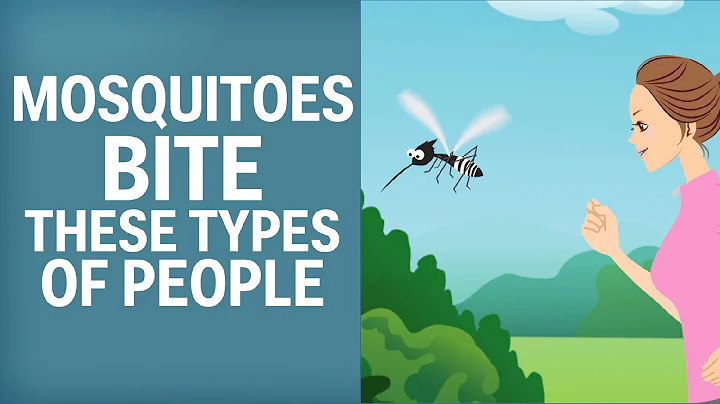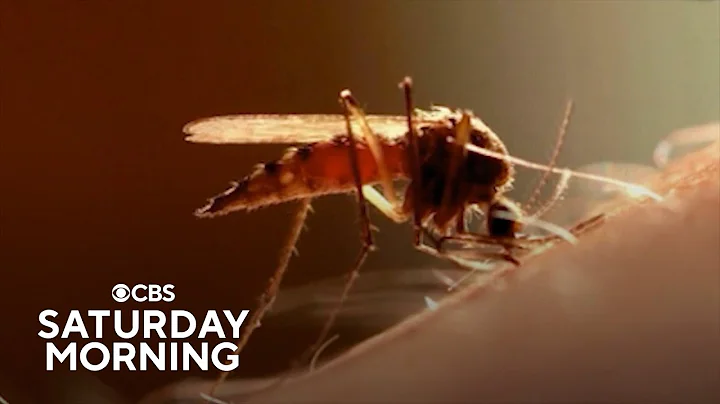Speaking of the most annoying animal in summer
Many people’s answer must be mosquito
In addition to the unbearable itching and swelling
mosquitoes bring to people
there are also a variety of terrible mosquito-borne infectious diseases
in the vast world
What kind of people are most attractive to mosquitoes in a sea of people?
In a study just published in
"Cell" (Cell)
The team of Professor Cheng Gong of Tsinghua University School of Medicine
revealed the cunningness of mosquito-borne viruses
In 2018, 8 published by the World Health Organization Among the infectious diseases that require urgent attention are two severe mosquito-borne viral infectious diseases (Zika fever and Rift Valley fever). Mosquito-borne viral infectious diseases, such as dengue fever, Zika fever, chikungunya fever, Rift Valley fever and West Nile encephalitis, pose serious challenges to global public health security.
Take dengue virus as an example. According to the World Health Organization, it is estimated that about 390 million people are infected or repeatedly infected with dengue virus every year, resulting in 500,000 to 1 million people being hospitalized. Due to the complex pathogenic mechanisms of mosquito-borne viruses, most potent mosquito-borne viruses still lack effective vaccines and targeted treatments. Therefore, the scientific community urgently needs to conduct more in-depth research on the transmission mechanism of mosquito-borne viruses to provide new ideas for the prevention and control of mosquito-borne virus transmission.

Maybe everyone has been curious about this question: Why are some people more likely to be bitten by mosquitoes? Is it a higher body temperature? More CO2 released? Or more of a sweat smell? The study found that human body odor is a key factor in regulating mosquito behavior.
01 Why are you more palatable to mosquitoes?
In the vast sea of people, mosquitoes do not bite hosts randomly. They always seem to be able to accurately locate hosts infected with mosquito-borne viruses. So, how do mosquitoes target virus-infected people? Why are these people more "delicious" in the eyes of mosquitoes?
Professor Cheng Gong’s team at Tsinghua University School of Medicine revealed that the virus changes the human skin microorganisms, reshapes the odor of the infected person, and affects the olfactory perception of mosquitoes. This discovery also provides a new strategy for blocking the rapid spread of mosquito-borne viruses in nature.

In this study, Professor Cheng Gong's team first set up a three-cage olfactory measurement device, using mice as the infection host and Aedes aegypti , which loves human blood, as the infection vector to conduct a control experiment. The results found that mice infected with mosquito-borne viruses can release a large amount of a volatile small molecule - acetophenone (Acetophenone). can effectively activate the mosquito's olfactory nervous system to affect the mosquito's olfactory perception.

Three-cage olfactory measurement device
Subsequently, the researchers further collected the odors of dengue fever patients and healthy volunteers, found that the odor of dengue fever patients showed stronger attraction to Aedes aegypti mosquitoes. Interestingly, acetophenone levels were also significantly higher in the odors of dengue patients than in healthy volunteers. When researchers applied different concentrations of acetophenone to human arms to conduct behavioral verification of mosquitoes, the results showed that arms with higher concentrations of acetophenone were more likely to attract mosquitoes. The above research results show that dengue fever patients release large amounts of acetophenone to change their own smell, which greatly increases their attractiveness to mosquitoes, attracts mosquito bites, and accelerates the spread of the virus.
02 How is the "fragrance" that attracts mosquitoes generated?
The question is, how do these viruses manipulate the host to produce more acetophenone?
Researchers have found that acetophenones released by humans or animals mainly come from skin commensal microorganisms on the body surface. Dengue and Zika virus infection can lead to a significant increase in the abundance of bacteria on the host's skin surface. And this Bacteria have the ability to metabolize large amounts of acetophenone.
So far, researchers have revealed the reason why people infected with mosquito-borne viruses attract mosquito bites: virus infection increases the proportion of specific bacteria in human skin and significantly increases the infected person's ability to release acetophenone, thereby significantly improving the ability of the infected host to Mosquito attraction.

The research team is assessing mosquito behavior using an olfactory measurement device. From left to right are Dr. Zhang Hong, the co-first author of the paper, Assistant Researcher Zhu Yibin, and Professor Cheng Gong, the corresponding author of . (Image source: Xuan Guo)
Subsequently, in order to identify the key genes involved in this process, the researchers also conducted RNA-Seq sequencing analysis on the skin tissues of virus-infected mice and non-infected mice. found that dengue virus and Zika virus infection can inhibit the expression of the specific immune factor in the host skin. causes the originally suppressed skin Bacillus to overproliferate, resulting in an increase in the release of acetophenone in the infected host.
In the latest study, the research team fed a vitamin A derivative, isotretinoin, to mice infected with dengue virus and Zika virus. This is a widely used clinical dermatology drug. After being taken by mice, effectively inhibits the proliferation of Bacillus in the infected host skin, thus limiting the release of special human odor. Therefore, after the infected host takes isotretinoin orally, the mosquito cannot locate and infect the host through the host's odor, thus blocking the virus transmission cycle.

By supplementing vitamin A drugs, it can reshape the release of acetophenone by infected individual skin microorganisms and reduce the efficiency of the mosquito-borne virus transmission cycle. (Image source: Photo courtesy of the research team)
03 How to get rid of the "come and bite me" label?
Based on the above findings, researchers have proposed a new idea for the prevention and control of mosquito-borne viruses: the rapid spread of mosquito-borne viruses can be blocked by regulating human body odor. Extensive supplementation of vitamin A or related drugs to infected persons in epidemic areas where mosquito-borne viral infectious diseases are prevalent is expected to become a new strategy to avoid large-scale epidemics of mosquito-borne viral infectious diseases.
Professor Cheng Gong said: "Currently, we at Malaysia have completed research on the changes in skin microorganisms of infected and non-infected people. Next month, a clinical trial of isotretinoin will be conducted. If everything goes well, may be promoted in the future. Application." Cheng Gong said that isotretinoin has already been an approved drug, and this study is equivalent to adding an indication for it.
"For many years, when mosquito-borne virus infection occurs in an area, we are mostly limited to public health descriptions, such as counting infection rates, number of people, etc. The solution is to 'kill it', and people have developed various methods Insecticides , The large-scale use of insecticides has not reduced mosquito-borne viruses, but has intensified. The incidence of dengue fever has increased 30 times in the past 40 years, "Cheng Gong said, "So we need to really go. Understand, what is the basic principle of the transmission cycle of mosquito-borne viruses in nature? Why does it spread? Why can it spread quickly? This is the most basic and simple scientific question, but it contains complex relationships between humans, mosquitoes, and viruses. There are many mysteries to be answered about the interaction. "
It is these complex effects and mysteries that fascinate Cheng Gong, and also give him the determination to not chase hot topics and stick to himself. Currently, researchers have initiated studies on the effects of other mosquito-borne virus-infected hosts on mosquito behavior. believes that these studies will provide new and powerful weapons to curb the spread of more mosquito-borne diseases.
References: [1] Hong Zhang et al., A volatile from the skin microbiota of flavivirus-infected hosts promotes mosquito attractiveness. Cell (2022). DOI: 10.1016/j.cell.2022.05.016
●
●
●
Source|Chinese Science Journal
Pictures of Academic Journal of Medical College | Compilation of information by Professor Cheng Gong’s research team
| Editing by Jiang Shengying
| Anne Jiang Shengying

★
fine
color
Back
Gu
★
Their story is "The Bridge"
What is the one thing you most want to take away when you graduate?
Tsinghua selected book list, spend the summer with you!
is the first time in China! Three Tsinghua undergraduate students won this award.


Tsinghua University All rights reserved. Contact email [email protected]
Are you "looking" at me?






















